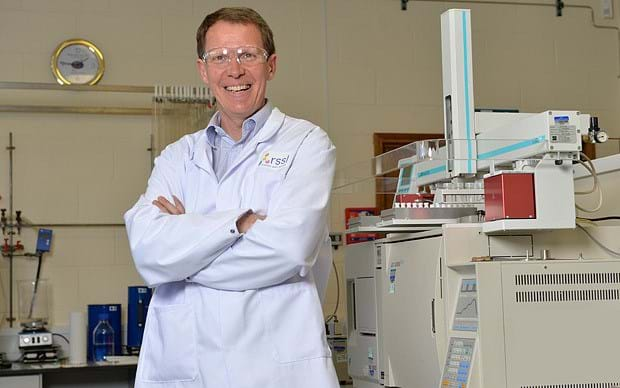Ten ways to excel as a chemical engineer in the food industry (Day 296)

19th March 2015
It's always a pleasure to pick up a newspaper and read about the latest achievements of a fellow chemical engineer, and in this case, an IChemE member.

Many chemical engineers are discouraged from talking about their work. Particularly when an employer doesn't want you to let the cat out of the bag and give away a secret formula, process or recipe.
So I was particularly pleased to discover that Alan Gundle, the chief analytical scientist for the leading global confectionery, food and drink manufacturer Mondelez International, had spoken about his work in a leading UK broadsheet newspaper.
The article is truly inspirational, and based on Alan's comments, I've compiled a list of things that can help the chemical engineer to succeed in the food and drink industries.
It's my own personal list and it's not exhaustive, but here's my starter for ten:
1. Study what you love

It makes a huge difference if you truly love what you do. After forty years in chemical engineering, I am still fascinated by my work, and that's probably the most important part of any job. I frequently encounter this same fascination in the students that I meet. Studying what you love can reap dividends. That was certainly the case for the students in this blog ‘Chemical engineering students and the perfect pint’.
Alan Gundle clearly caught the same bug, and he was so captivated by the power and potential of chemical engineering that he switched courses to study it.
2. Apply hard science

Food science is complex. Food sticks; it gels and often, it doesn’t want to flow. At the same time, the consumer is very demanding. So the field presents some interesting intellectual challenges. One of the best way to solve these problems is to apply hard science and in my blog ‘Will diet foods ever become the norm?’ I discuss how chemical engineers apply science to stabilise aerated foods.
3. Look for the gaps

Successful product and process engineering in the food industry often hinges on the ability to identify what's missing and how to fill the gap. An good example of this can be found in my blog ‘Creative juices...with alcohol and frozen’. Here, chemical engineers recognised a gap in the market and filled it in style.
4. Keep looking for the next invention

The next big thing sometimes comes out of nowhere. I am frequently impressed by the capability of chemical engineers working in the food sector to innovate and focus on more sustainable processes. The radical thinking that led to the use of crustacean waste for food packing is a good example.
5. Think laterally

We can often ‘borrow’ ideas from one discipline and apply them to another. This is what Alan did when he realised that wholegrain flour processed through superfine milling machinery resulted in wholemeal biscuits that didn’t feel rough in the mouth. He adapted his thinking to improve the texture of instant coffee by adding very finely milled coffee beans – the result was Kenco Millicano.
6. Be creative

The creative aspects of my work are often the most enjoyable. Creative thinking brings a different approach; providing the opportunity to be playful, or make daft suggestions (that often aren’t so daft!). I encourage all chemical engineers to embrace the occasions when they can be creative, because that's when the best ideas can emerge. Alan harnessed the power of his creativity to produce a dry coffee creamer that explodes when it hits water.
7. Understand sophisticated machinery

We live in an age of machines. Being able to use technology effectively is vital in the food industry. This allows for the production of more sustainable and safer products. The ability to eliminate uncertainty from the manufacturing process is one of the important contributions of the chemical engineer in the food industry, they are ‘The real guardians of the brand’.
8. Experiment

Trying something new can offer huge rewards. Although there is limited room to experiment at the finished product end in the food industry, the development stage offer a lot more potential. This spirit can clearly be seen in the work of many chemical engineers.‘Yeast revealed as alternative to palm oil’ is a good example and one that could yield a breakthrough in food production.
9. Embrace all the aspects of chemical engineering

The ability to understand, and apply the full spectrum of chemical engineering knowledge can be crucial to success in the food industry. Core chemical engineering, like the intuitive understanding of mass transfer is essential. So is materials science and physical chemistry. And there's a need for transferrable skills too.
10. Study the hardest science you can

Finally, when Alan picked chemical engineering, he picked it because it challenged him. Chemical engineering is a tough subject, but it can be incredibly rewarding, especially to those who are willing to go the extra mile.
Alan says it's worth it and I would definitely agree.
The food industry delivers a wide range of products that find their way onto dining tables all over the world. From farm to fork, chemical engineers play a role in producing tastier, healthier and more sustainable food for everybody.
